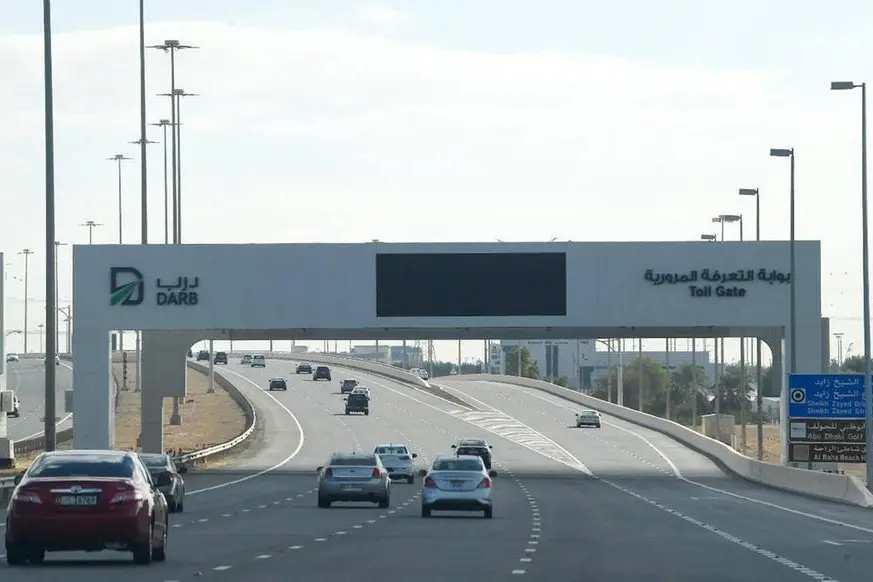PHOTO
Staggered start times for offices and schools, incentives for school bus use, a push for carpooling, a working-from-home option, and further improvement of the public transport system are some ideas motorists and road safety experts suggested to ease Salik expenses and road congestion.
The new Salik gates announced recently by the Roads and Transport Authority (RTA) and toll operator Salik Company PJSC have remained a hot topic among residents as they brace for additional expenses by November when the two extra toll gates become operational.
Motorists also shared opinions on the announcement by Suhail bin Mohammed Al Mazrouei, Minister of Energy and Infrastructure, on Wednesday (January 24) that the ministry would study a proposal by lawmakers to construct a new highway to help reduce congestion along federal roads linking Dubai and the Northern Emirates.
This comes as residents told Khaleej Times that they lose an equivalent of a day or two each month being caught in daily traffic.
Flexible work timings
Dubai resident Ahmad Khurshid said: “I am not very sure road extensions or additional highways will sort out congestion. The federal government should contemplate flexible working hours like other European countries, the US, and Canada.
He explained: “Give the flexi-time from 5am to 10 evenings – you can start and finish your work on a rotating program. This should be decided by the company management, and I think it will help resolve 50 per cent of traffic or road jams.”
Mohammad Raihan Mahafus said, “Schools can consider having a three-day weekend. School run is certainly a major contributor to rush-hour traffic.
“We can make more national highways connecting all emirates, but construction will take longer. In the meantime, we can implement flexible timings for schools and work areas – some can start between 7am and 8am, and others can start at 9am, 10am or 11am, so not everyone will be on the road at the same time."
Flexible Salik tariff
The introduction of new Salik gates – one located at Business Bay Crossing on Al Khail Road and the other one at Al Safa South on Sheikh Zayed Road between Al Meydan Street and Umm Al Sheif Street – meanwhile is expected to reduce traffic on key Dubai routes by up to 42 per cent.
But passing under one of these new toll gates would mean a minimum of Dh8 additional expense travelling between home and work daily, accumulating up to Dh160 monthly. “This extra expense will eat up our monthly household budget as this is already equivalent to 10 bags of 5-kg rice at Dh15-16 per bag,” as noted by a KT reader earlier.
This is why motorists like Mahafus strongly suggest implementing flexible Salik charges.
The RTA has also announced that it is considering introducing dynamic pricing, whereby higher charges will be levied at peak times.
“That is a welcome consideration,” noted Mahafus, “as some motorists will be able to avoid toll charges if flexible work and school timings are introduced. The flexible tariff is already being implemented in Abu Dhabi, and it gives motorists window time to pass Darb toll gates for free during non-peak hours, Sundays and holidays.”
Flexible solutions
Thomas Edelmann, founder and managing director of RoadSafetyUAE, noted: “Road toll has three objectives – to generate revenues to finance the maintenance and expansion of the traffic infrastructure; to help reduce traffic on congested roads to alternative no-toll roads, thereby regulating the flow of traffic; and to reduce traffic to benefit the environment by less pollution.”
Edelmann, however, underscored, “Besides the positive effect of generating finances, it would be very interesting to conduct studies of how much traffic will be reduced on tolled roads because not all motorists will seek alternative non-tolled routes.”
He added road tolls will encourage motorists to switch to public transportation. “This system is in place in cities with a developed public transportation system, like in European cities. But the situation in Dubai is a bit different, as the public transportation system often does not offer a feasible or convenient alternative for many.”
This is why Edelmann is pushing for carpooling. “From a road safety standpoint, the fewer vehicles are on the road, the freer traffic flows and the fewer chances for traffic congestion,” he explained.
He added: “In addition to aiming to have fewer vehicles on the roads – especially during rush hour – the introduction of staggered start times for offices and schools, incentives for use of public buses, working-from-home, and other creative ideas for further improvement of mass transit system must also be considered.”
Copyright © 2022 Khaleej Times. All Rights Reserved. Provided by SyndiGate Media Inc. (Syndigate.info).





















